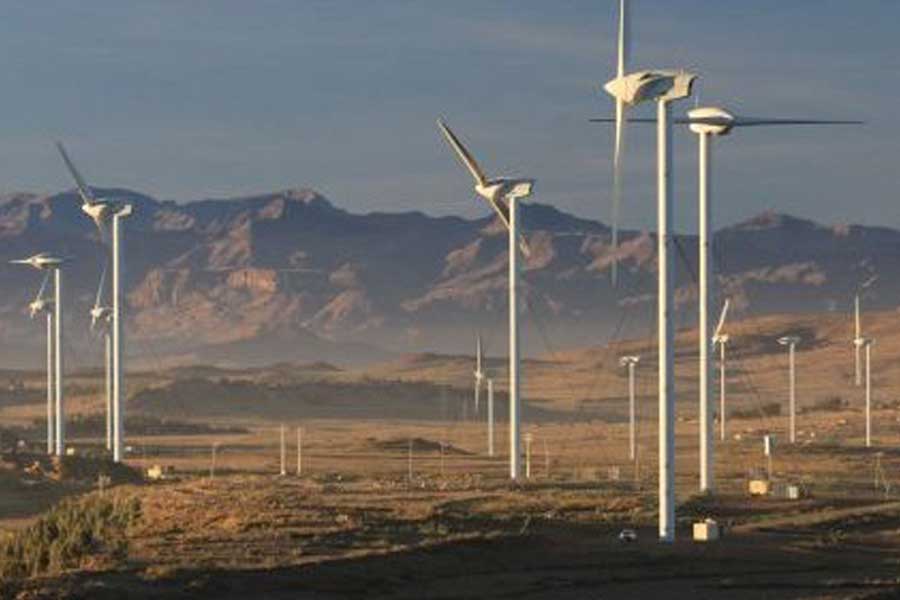
Sponsored Contents | Mar 28,2022
Sep 26 , 2021
By HAWI DADHI
Ethiopian officials have approved a list of products and services subject to customs tariff reductions under the African Continental Free Trade Agreement (AfCFTA).
Seven percent of the duty items are free of tariff cuts within six to 13 years, while the remaining 190 (three percent) are not up for negotiations. But this exclusive list is up for amendment every five years. Nearly 90pc of the 6,328 products available will be up for a gradual tariff removal within a decade.
No tariff reduction or removal will be applied on goods and services on which the country has no competitive advantage, according to the officials. This includes the financial sector and the retail market, both identified as areas with little comparative advantage for Ethiopia.
The items are selected based on their prospects for job creation, revenues generation, and contributions towards the country's food security, according to Mussie Mindaye, director of Multilateral, Regional & Bilateral Trade Negotiation at the Ministry of Trade & Industry.
Items with high customs revenues are not up for negotiations, says Mamo Mihretu, chief trade negotiator and policy advisor at the Prime Minister`s Office.
Mamo leads a steering committee comprising representatives from eight federal government offices, including the Ministry of Finance and the central bank, in charge of reviewing documents prepared for negotiations.
"Manufactured goods that are a source of job opportunities for many are not open for foreign competition under the free trade area and will not enjoy a tariff reduction," the Chief Negotiator told Fortune.
Ethiopia is the 19th country to submit its instrument of ratification, a document that includes tariff concessions and monitoring mechanisms, two years ago. Before the approval, the document was sent to the Ministry of Finance and the Customs Commission for comments. Ethiopia has identified items that will be negotiated upon receiving tariff reductions from other African countries. If allowed, the countries will receive import tariff reductions, and Ethiopia will be privy to the same privileges as well.
The AfCFTA was conceived nine years ago to bring down trade costs and allow African countries to play a bigger role in global supply chains. The agreement is touted by the World Bank for its potential to increase export by seven percent to 450 billion dollars and lift 30 million people out of extreme poverty by 2035.
All the African countries but Eritrea have signed the agreement, although close to 34 countries have ratified the deal with their legislative houses.
It is not easy for countries to remove tariffs in a short period of time. This is why the AfCFTA aims at progressive elimination, instead of immediate, according to Bereket Alemayehu, an international trade law expert working for international organisations, including the then UK-DFID.
The private sector has also been engaged in discussions through various associations, and engagement with others remains, according to Mussie, whose office is planning to submit the documents to the African Union (AU) after consultations are concluded.
Among those included in the 90pc tariff reduction bracket is the leather industry.
"What we want is for documents to be submitted quickly and get on business," said Daniel Getachew, secretary-general of the Ethiopian Leather Industries Association, who believes the industry has a competitive advantage as row materials are available in the country. Nonetheless, the industry has been battling with a shortage of foreign currency needed for imports and a lack of supply of quality inputs.
According to Daniel, this would all be solved if a market is created through the AfCFTA.
"The amount of foreign currency used to buy inputs for production is 10pc of what we potentially generate," said Daniel. "If manufacturers could earn significant exports from the African market, it would be sufficient to address the foreign currency shortage."
Some negotiations such as trade competition and intellectual property rights discussions are yet to occur between the signatory countries.
The AfCFTA would virtually cover all trade in goods and services, in principle. Agricultural commodities, such as coffee and bananas, are expected to be among those that would see more competition, given that agriculture plays a key role in many African economies, according to Bereket.
"It's also expected that the markets for finished and semi-processed products will be progressively competitive because many African countries are hosting manufacturing investments," said Bereket.
PUBLISHED ON
Sep 26,2021 [ VOL
22 , NO
1117]

Sponsored Contents | Mar 28,2022

Radar | Oct 16,2021

Radar |

Commentaries | Jul 12,2025

Editorial | Jan 13,2024

Fortune News | May 02,2020

Fortune News | Dec 02,2023

Radar | Jun 25,2022

Radar | Jul 02,2022

Radar |

Dec 22 , 2024 . By TIZITA SHEWAFERAW
Charged with transforming colossal state-owned enterprises into modern and competitiv...

Aug 18 , 2024 . By AKSAH ITALO
Although predictable Yonas Zerihun's job in the ride-hailing service is not immune to...

Jul 28 , 2024 . By TIZITA SHEWAFERAW
Unhabitual, perhaps too many, Samuel Gebreyohannes, 38, used to occasionally enjoy a couple of beers at breakfast. However, he recently swit...

Jul 13 , 2024 . By AKSAH ITALO
Investors who rely on tractors, trucks, and field vehicles for commuting, transporting commodities, and f...

Oct 11 , 2025
Ladislas Farago, a roving Associated Press (AP) correspondent, arrived in Ethiopia in...

Oct 4 , 2025
Eyob Tekalegn (PhD) had been in the Governor's chair for only weeks when, on Septembe...

Sep 27 , 2025
Four years into an experiment with “shock therapy” in education, the national moo...

Sep 20 , 2025
Getachew Reda's return to the national stage was always going to stir attention. Once...